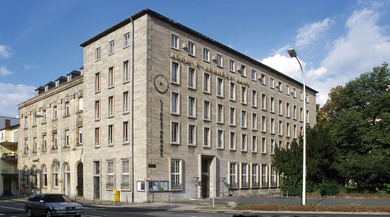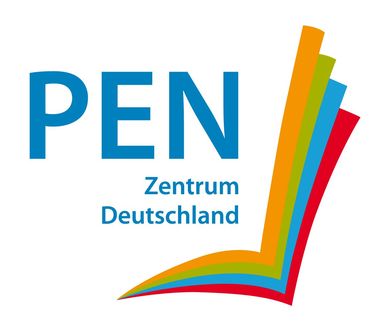PEN Zentrum Deutschland
PEN Zentrum Deutschland
64293 Darmstadt
PEN Zentrum Deutschland
 Literaturhaus Darmstadt© Foto: Nikolaus Heiss The German PEN Centre (PEN-Zentrum Deutschland) is one of the 140 writers’ associations worldwide that make up PEN International. The three letters stand for Poets, Essayists, Novelists. PEN was set up in England in 1921 as a literary circle among friends. It soon spread to other countries and established itself as the advocate of freedom of expression and is seen as the voice of persecuted and suppressed writers everywhere.
Literaturhaus Darmstadt© Foto: Nikolaus Heiss The German PEN Centre (PEN-Zentrum Deutschland) is one of the 140 writers’ associations worldwide that make up PEN International. The three letters stand for Poets, Essayists, Novelists. PEN was set up in England in 1921 as a literary circle among friends. It soon spread to other countries and established itself as the advocate of freedom of expression and is seen as the voice of persecuted and suppressed writers everywhere.
A writer can only become a member of PEN if one of the centres in the various countries elect him/her to join because of special literary achievements and if the elected writer acknowledges the club’s principles by signing its charter.
German PEN dedicates itself in particular and intensely to the internationally unique programme “Writers in Exile” which is a continuation of its “Writers in Prison” activities – not least because of its sense of responsibility arising from its own history.
The Writers-in-Exile programme of the German PEN Centre
In addition to its Writers-in-Prison work, the German PEN Centre focuses on protecting persecuted writers who come here because they have been harassed or even tortured in their home countries; it helps them escape their persecutors and offers them perspectives for the future.
Using funding from the German federal government PEN set up its Writers-in-Exile programme in 1999. Apartments were arranged for exiled writers in several German cities and other German cities, like Weimar and Darmstadt - which established the Elsbeth Wolffheim grant - followed suit. The foreign writers who are accepted into the programme receive a grant from the budget of the Minister for Culture and Media, initially limited to one year and extendable to a maximum of three years. The apartments are sometimes paid for by the local authorities in the host town or city, sometimes using funds from the Writers-in-Exile programme, while the Darmstadt PEN office together with voluntary workers from among the PEN members and the PEN sponsoring circle make sure that the grant recipients are given help in managing the everyday problems facing them. At the same time, PEN makes efforts to establish contacts between the authors and publishers, translators and editorial offices as well as organising readings and discussions to introduce the often completely unknown authors and their works to the German public; and it also releases anthologies with their texts.
When Michael Naumann, State Minister of Culture at the time, gave birth to this programme in collaboration with PEN, he simultaneously paved the way for Germany to pay back some of the “debt of gratitude” it owed to the countries that took in so many German academics, writers and artists during the Nazi dictatorship.
Every organisation that offers help for writers who are forced to go into exile soon realises that every single destiny is special. Common to most is the language problem. It also makes a great difference whether writers have to leave their family behind, whether they find a community of people from their home country here and, last but not least, how severely traumatised they are. In some cases, it is even necessary to provide extensive security at the writer’s new place of residence or to hide their identity. What we aim to do is create conditions under which exiled authors, to use the words of Adorno, can “be different” – “without fear” and without discrimination.
Franziska Sperr
Writers-in-Exile Officer and Vice-President
of PEN-Zentrum Deutschland

